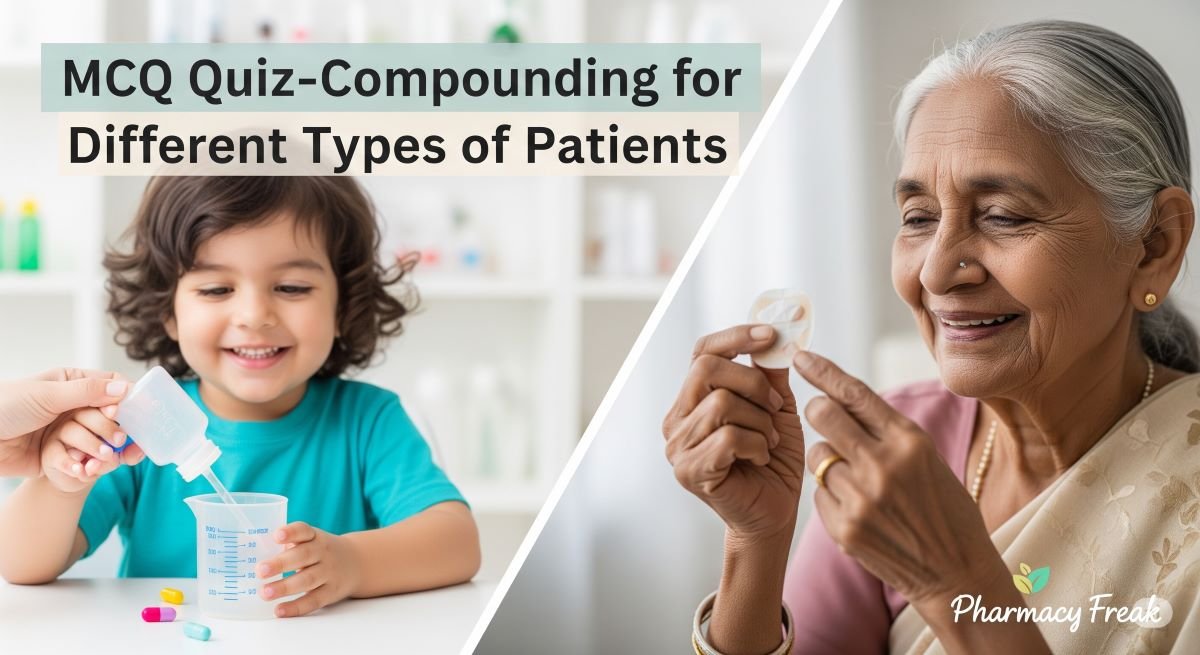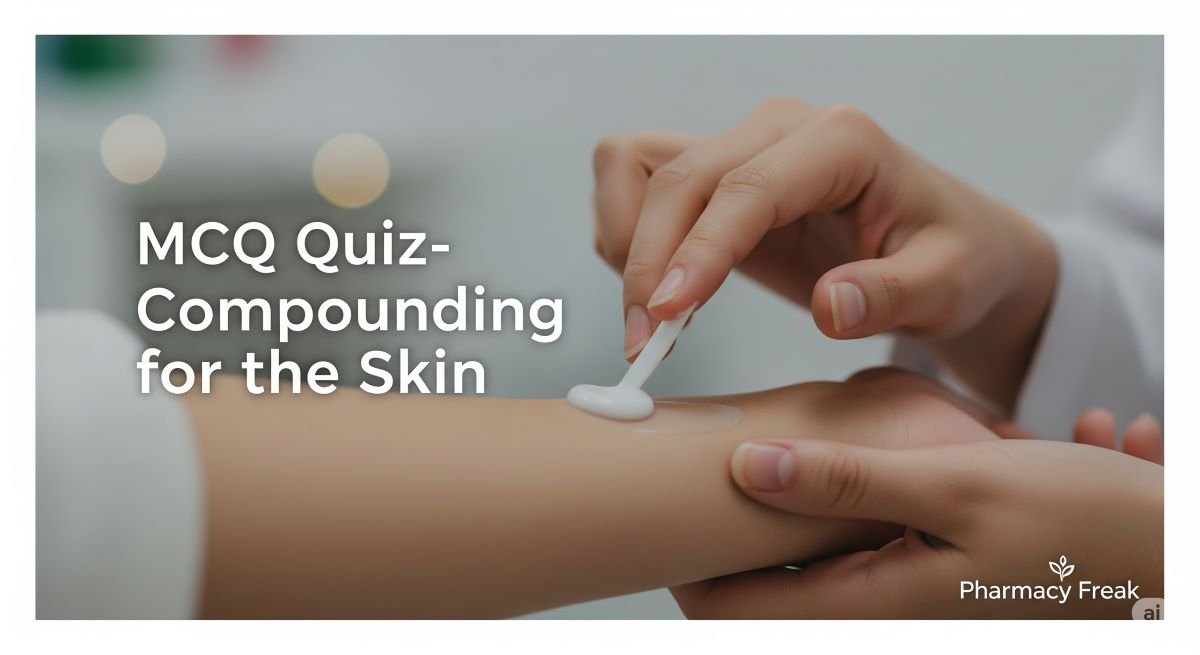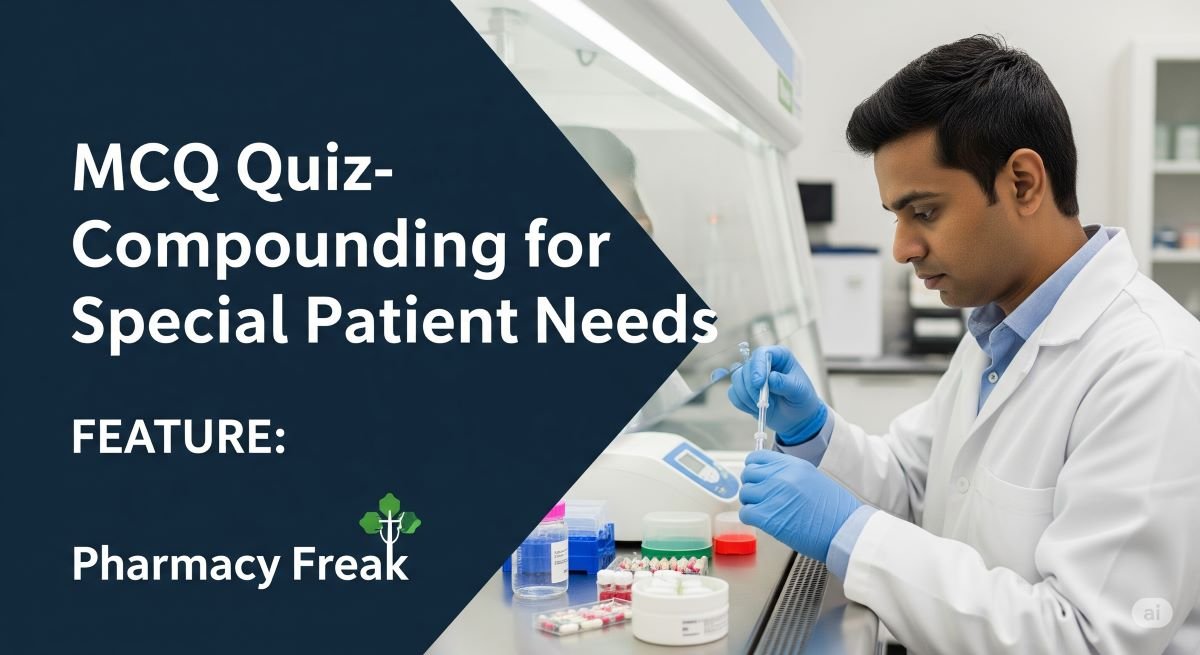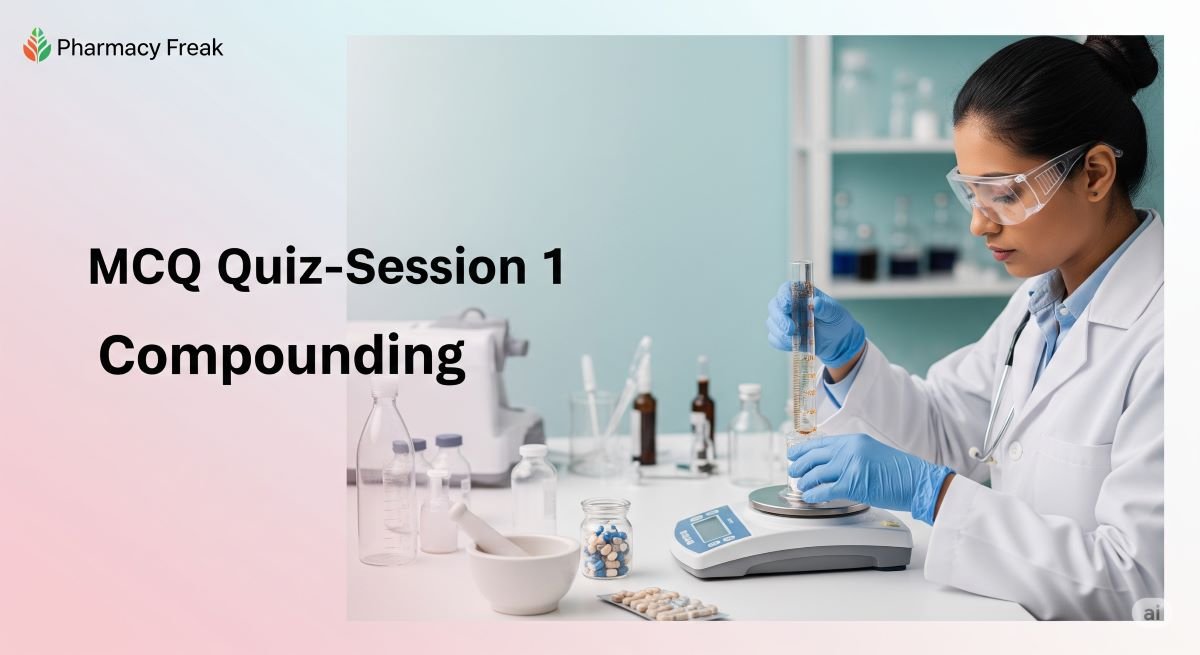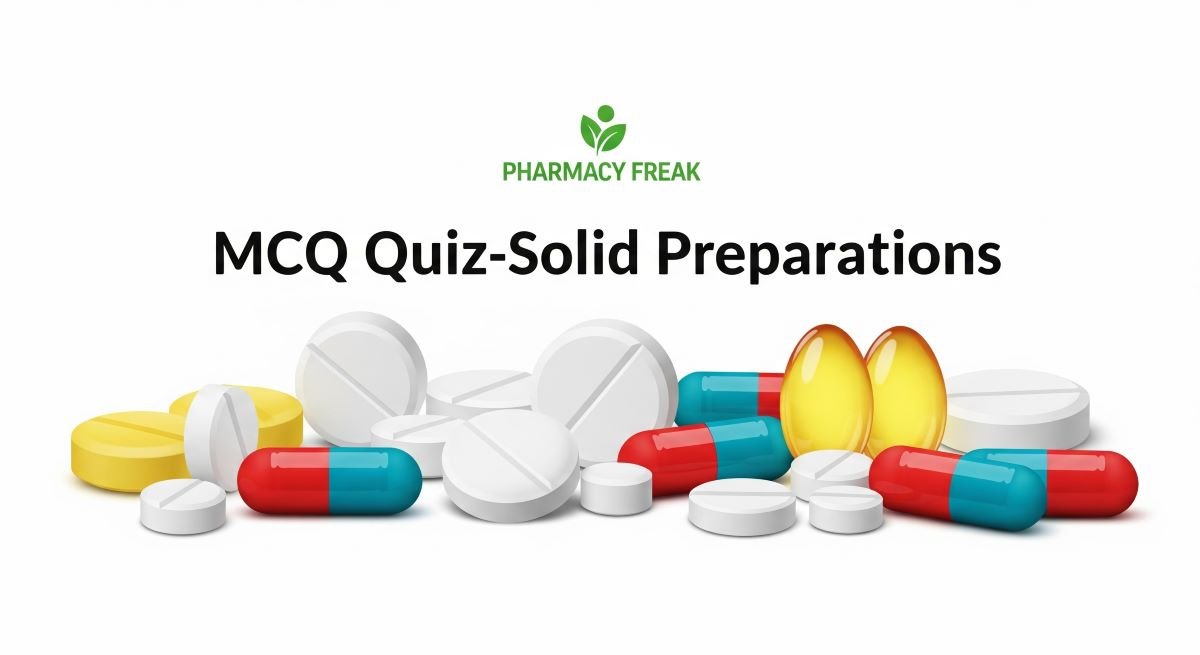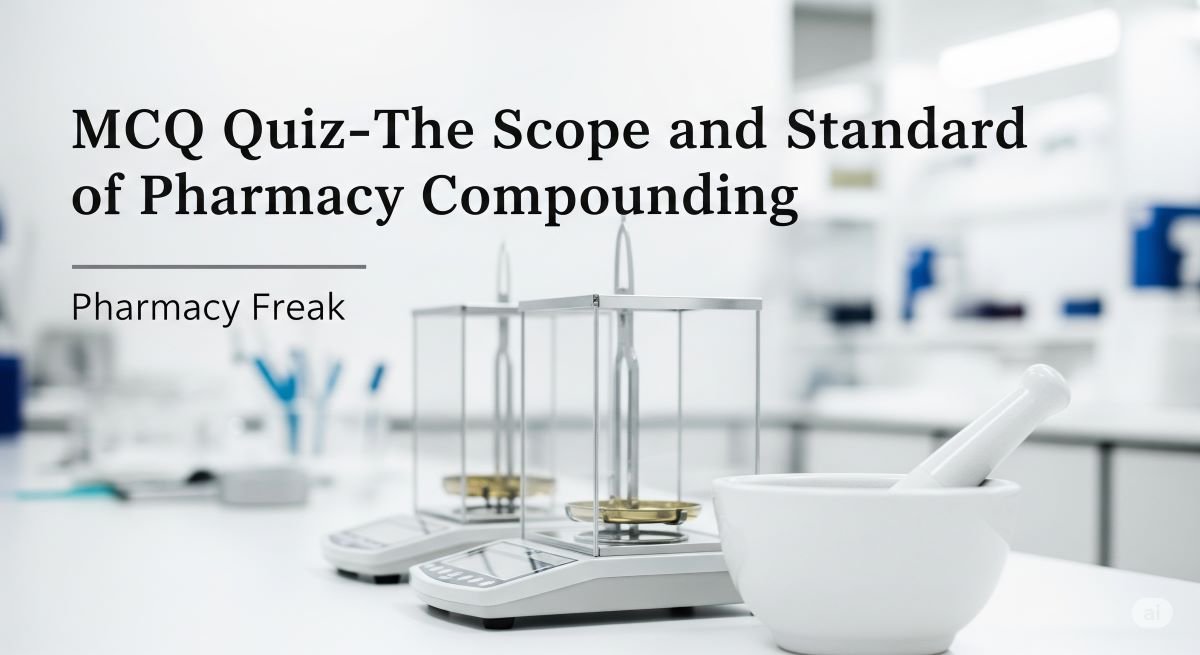

Master Advanced Non-Sterile Compounding MCQs
Advanced non-sterile compounding is all about precision, safety, and meeting unique patient needs. These MCQs help you sharpen your technical skills, reinforce quality standards, and problem-solve real compounding scenarios—key for anyone preparing for exams or working in a compounding pharmacy.
What’s Covered in Advanced Non-Sterile Compounding?
This subject focuses on preparing customized medications that aren’t commercially available, following strict protocols to ensure quality and safety. You’ll explore formulation design, calculations, ingredient selection, equipment use, and the documentation required for every compounded prescription.
What Will Advanced Non-Sterile Compounding MCQs Test?
Core Focus Areas
Formulation and Calculations:
Expect questions on precise weighing, measuring, and calculating ingredient quantities, including alligation and density calculations.Ingredient Selection and Compatibility:
MCQs may test your understanding of excipient choices, stability, solubility, and potential incompatibilities in compounded preparations.Compounding Techniques:
Look for scenarios involving advanced mixing, suspending, emulsifying, flavoring, and troubleshooting preparation challenges.Quality Assurance and Control:
Questions will cover best practices for documentation, labeling, equipment calibration, and cleaning protocols to maintain high standards.Regulatory and Safety Guidelines:
Expect to see MCQs on USP <795> requirements, beyond-use dating, patient counseling, and record-keeping for compounded medications.
Why These MCQs Matter
Here’s the thing: mistakes in non-sterile compounding can lead to ineffective or unsafe medications. Mastering these MCQs is more than academic—it’s about making sure every product you compound meets the highest standards for patient care and safety.
Tips for Success with Advanced Non-Sterile Compounding MCQs
1. Double-Check Every Calculation:
Accuracy is critical. Take your time with math—there’s no room for error in weights, measures, or concentrations.
2. Prioritize Quality and Documentation:
Choose answers that reflect careful documentation, clear labeling, and regular equipment checks.
3. Know the Protocols:
If an MCQ asks about process steps, follow established USP <795> guidelines and pharmacy SOPs.
4. Recognize Ingredient Roles:
Understand why each excipient or additive is chosen—whether for stability, palatability, or drug delivery.
5. Think Patient Safety:
Go with answers that prevent contamination, maximize stability, and ensure the final product is both effective and safe.
Building Your Non-Sterile Compounding Expertise
Advanced non-sterile compounding MCQs help you think like a compounding specialist—focused, meticulous, and always putting patient safety first. Use each question to strengthen your technique and boost your confidence in one of pharmacy’s most hands-on roles.
